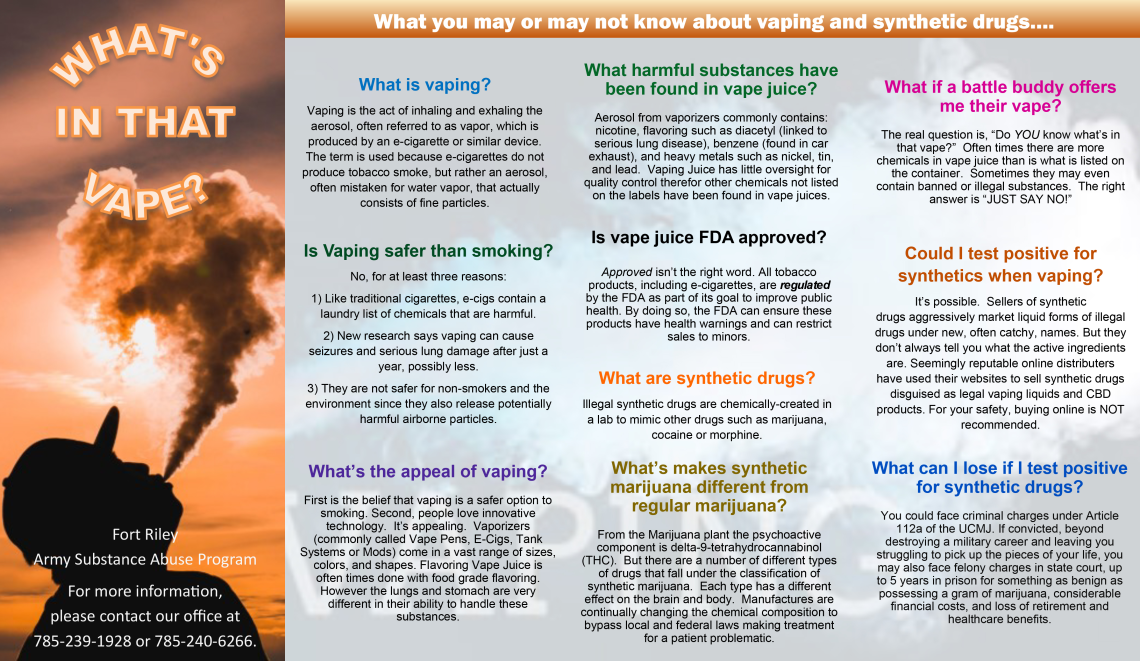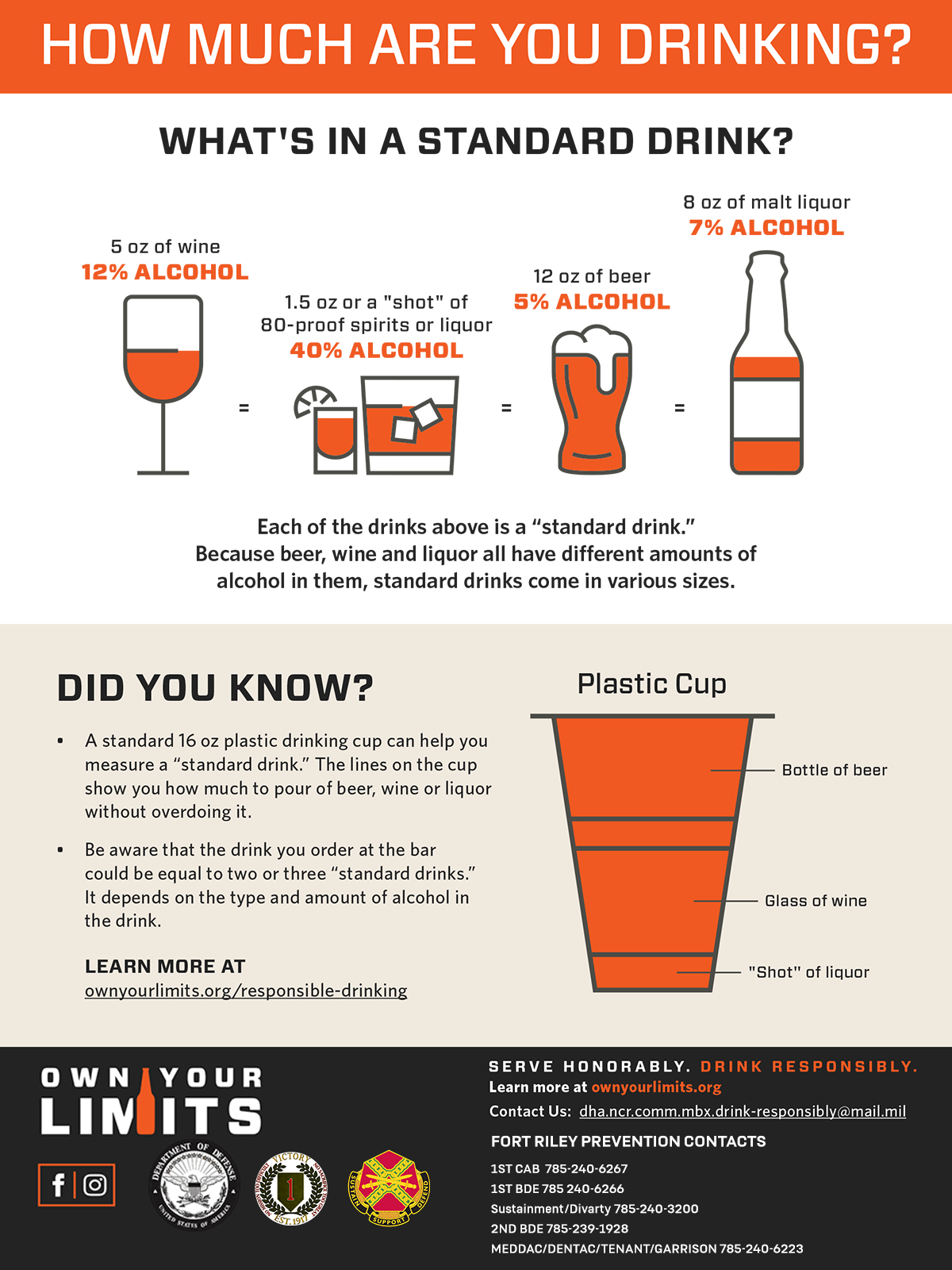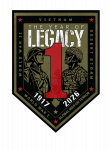
Army Substance Abuse Program (ASAP) mission is to strengthen the overall fitness and effectiveness of the Army´s workforce, to conserve manpower and enhance the combat readiness of Soldiers. The Army Substance Abuse Program (ASAP) supports commanders with proactive programs that focus on prevention education and training.
GOOD TO KNOW


ASAP Programs
Risk Reduction Program
Risk Reduction Program (RRP) is a commander's tool designed to decrease Soldier high-risk behaviors, thus increasing Soldier and unit readiness. The program has been developed to identify and mitigate high risk behaviors (HRB) by utilizing a coordinated effort between commanders and installation agencies to implement effective intervention strategies.
The Commander's Risk Reduction Toolkit (CRRT) is a module within the Army Vantage cloud-based platform that provides Command Teams with Unit or Soldier data to assess their Units and Soldiers’ HRBs and deployment readiness. The intent of CRRT is to enable Commanders and RRPCs to more effectively monitor high-risk behavior in their units and engage with Soldiers at the earliest sign of a potential issue. Comprehensive access control policies have been implemented to ensure the sensitive data backing this functionality remains protected and is treated appropriately. The solution accomplishes the core goals of the CRRD program as listed below:
1.Identification of high-risk Soldiers.
2.Identification of risk histories for newly assigned Soldiers.
3.Referral of Soldiers to the appropriate service provider.
4.Tracking of unit-level high-risk behavioral trends.
5.Accurate, standardized, timely data for Commanders.
6.Tracking of high-risk events from occurrence through final disposition and intervention.
The RRP coordinates monthly/quarterly Installation Prevention Team (IPT) meetings, chaired by the Garrison Commander. The meetings are to review current risk factors and plan for upcoming prevention strategies based on historical trends. The primary goal of the IPT is to assist commanders in developing prevention strategies to reduce high risk factors, which may have a detrimental impact on Soldier and Unit Readiness.
The RRP also offers the Unit Risk Inventory (URI) and the Reintegration Unit Risk Inventory (R-URI). These surveys are anonymous questionnaires designed to screen for high risk behaviors and attitudes that compromise unit readiness. The URI is administered to the unit no later than 30 days prior to deployment or annually; the R-URI is administered to redeploying Soldiers 30-180 days after redeployment. The results of the URI/R-URI will be used to adjust training and prevention efforts within the unit to reduce high-risk behaviors. The URI is also a great tool for incoming commanders to assess the climate within their new unit.
If you have questions or need additional information, please contact our Risk Reduction Program Coordinator, Bldg 7424, Room 117, Apennines Drive or at 785-240-3089.
Command Teams, at all levels, can request access to the CRRT in the links below.
Drug Testing Program
The Drug Test Coordinator (DTC):
-coordinates, administers, and monitors all aspects of the Drug Testing Program
-Interprets Department of Defense (DoD), Department of the Army (DA) and Major Command (MACOM) program guidance, regulations and technical bulletins and develops local policies and procedures for implementation by unit commanders and the Director Army Substance Abuse Program (DASAP)
-Reviews all documentation and chain of custody documents associated with the collection procedure prior to the shipment of specimens to the Forensic Toxicology Drug Testing Laboratory (FTDTL). Assists in the development of a comprehensive training course for Unit Prevention Leaders to ensure adherence to regulations, policies and standing operating procedures.
-Serves as an instructor in presenting Drug Testing regulations, policies and other pertinent information. Reports all positive urinalysis results to the Director Army Substance Abuse Program and the respective Commander. Collects, maintains and reports statistical data on the Installation Drug Testing Program. Procures and maintains supplies sufficient enough to support their Command's Drug Testing Program.
Our staff serve as members of the Inspector Generals inspection team. The Drug Testing Coordinator staff conducts urinalysis testing for civilian personnel that fall under the authority of the Drug-free Federal Workplace Testing Designated Positions. These positions are listed under Army Regulation 600-85, chapter 14-20.
If you would like to contact an Installation Biochemical Testing staff member, please contact us at 785-239-4151, or stop by the Army Substance Abuse Program, Building 7424.
Prevention Services
The Prevention Team is a personnel readiness program that continues to be vital to the 1st Infantry Division Army Substance Abuse Program (ASAP) as dictated by statutes and Department of Defense (DoD) Directives. Our Prevention team supports America's Warfighting Center Commanders with:
* A proactive program that focuses on prevention and education.
* Identification of high risk areas and command consultations.
* A single source of authority for effective and efficient program operation.
As the Prevention Services Team, we continue to utilize emerging technology to enhance our services, efficiency and productivity by disseminating information to our local communities in a cost-effective method. The Internet offers our Prevention Team the opportunity to provide numerous materials and information available to our customers. The Prevention Team is a combination of programs and services developed and designed to support the mission of the 1st Infantry Division.
For further information, please contact the staff at the Army Substance Abuse Program, Building 7424, at 785-239-5075/1928 or 785-240-3200/6266 or 6267.
Civilian Services
Fort Riley tests all civilians that meet the stipulations required within the guidance of the Drug-free Federal Workplace Testing Designated Positions description. This program is outlined in Army Regulation 600-85, Chapter 14 - Army Substance Abuse Program (ASAP) Civilian Services, Section 20.
These positions are: defined by Executive Order 12564 as sensitive positions and are called Test Designated Position (TDP)/ Commercial Drivers License (CDL) (See Executive Order 12564, Section 7, Para (d)). Provided below are the sensitive positions or categories of positions that involve law enforcement, national security, the protection of life and property, or public health or safety which have been identified as Test Designated Positions. These positions have duties and responsibilities, which are consistent with the parameters established by the Department of Health and Human Services (DHHS) and the Office of National Drug Control Policy (ONDCP). Employees in these Test Designated Positions are subject to random testing that occurs without suspicion that a particular individual is using illegal drugs. Frequency of random testing will conform to Department Of Defense guidance. (Refer to Para 3-2f(6) in DA Pam 600-85 for additional instructions regarding the frequency of random drug testing.)
1. Positions that authorize the incumbent to carry firearms.
2. Positions that require the incumbent to operate a motor vehicle transporting one or more passengers on at least a weekly basis.
3. Operators of motor vehicles who are required to have a commercial driver's license and who drive motor vehicles weighing more than 26,001 pounds, or drive motor vehicles transporting hazardous materials.
4. Positions that require the incumbent to maintain a Top Secret clearance or have access to Sensitive Compartmented Information.
5. Railroad operating crews and railroad personnel in positions in which the duties include handling train movement orders, conducting safety inspections, or the maintenance and repair of signal systems.
6. Aviation flight crewmembers, air traffic controllers, and aviation personnel in positions in which the duties include dispatching, safety inspections, or the repair and maintenance of aircraft.
7. Army Substance Abuse Program positions in which the incumbent provides direct rehabilitation and treatment services to identified illegal drug users.
8. Personnel Reliability Program (PRP) positions, (nuclear duty positions or chemical duty positions) under the provisions of AR 50-5 or AR 50-6.
9. Positions, which require duties involving the supervision or performance of controlling and extinguishing fires, and/or the rescuing of people, endangered by fire.
10. Positions which require the handling of munitions or explosives in connection with the manufacturing, maintenance, storage, inspection, transportation, or demilitarization of these items.
11. Positions that require the incumbents to electroplate critical aircraft parts.
How long does it take to receive results from a civilian biochemical test, and who will receive the results?
It can take anywhere from 1-3 weeks for a sample to be evaluated as a negative result and be sent to the Prevention Coordinator (PC). A result evaluated with a positive status can take anywhere form 2-5 weeks. The Installation Biochemical Testing Coordinator (IBTC) will not receive these results. All results are forwarded to the Medical Review Officer (MRO) and Prevention Coordinator.
How does the random selection process occur?
The Civilian Personnel Activity Center updates the Test Designated Positions roster monthly, additions; deletion or changes are made monthly to the Test Designated Positions pool within the Army Drug Testing Program. The Prevention Coordinator uses the Army's computerized software to randomly select the number of Test Designated Positions to be tested at any given date. The computer will then provide a listing of names for the test. There is no human factor in the random selection process. The Prevention Coordinator is not able to specifically pick names for the random test as the program is designed to prevent this.
Once the selection process is completed, the Prevention Coordinator will contact the selected individual's supervisors. These supervisors will then notify the selected members. That selected individual will then have two hours to arrive at the Installation Biochemical Testing Point to provide a specimen so that the biochemical test can be administered.
Employee Assistance Program
The purpose of the Employee Assistance Program (EAP) is to provide civilian employees with confidential referral options to obtain assistance for problems that can affect their job performance.
Location: Army Substance Abuse Program, Building 7424, Custer Hill.
Services: Assessment/Referral for medical and emotional issues, stress, alcohol drug abuse, marital/family problems and financial matters.
Eligibility: Civilian employees, family members, active duty and retired military and family members.
For further information, please contact the staff at the Army Substance Abuse Program, Building 7424, at 785-239-1347.
Suicide Prevention Program
The suicide prevention program oversees quality suicide prevention and intervention training in order to build resilience, promote help-seeking behaviors, and ultimately prevent suicide. They provide coordination and guidance for all suicide prevention activities for the Total Army family at Fort Riley with the intent of minimizing suicidal behavior among our warfighters, family members, and civilians. To ensure stigma around suicide is reduced and help-seeking behaviors are enhanced.
Training:
The Fort Riley Suicide Prevention Program manages all suicide prevention training including the Applied Suicide Intervention Skills Training (ASIST) Gatekeeper training as part of CG Policy Letter #31. Gatekeepers are non-rank specific, approachable and mature, no unresolved suicidal issues, need to be selected carefully. Gatekeepers can be useful for command to be vigilant in identifying risk of suicide within the unit, speak with, and refer the individual to appropriate resources. Gatekeepers are also an asset to follow-up if an attempt is made or if someone was referred to Behavioral health for suicide ideation.
Training is tracked through the S3 shop of each unit and Gatekeepers trained are reported back to the Suicide Prevention Program to submit to the Chief of Staff for review. If units are green in their Gatekeeper numbers, their company can be eligible for the red or yellow streamer as part of the SABER award.
For training for your unit please have the unit training NCO submit a Form 28 to Military Schools.
Family member and Civilian training: ASIST is also part of the Resilient Spouse Academy (RSA) a week long academy to equip Family members knowledge and tools to help themselves or friends and loved ones at times of high stress. After ASIST, Family members are more ready, willing, and able to deal with suicide. For enrollment to the RSA, please contact 239-5444.
For all other classes and training, please contact the Suicide Prevention Program at 240-5169 for enrollment and information.
Training
*A five-day Unit Prevention Leaders (UPL) Certification Course is conducted by the DTCP staff monthly, at Bldg. 7424. For certification and recertification, contact the DTCP at (785) 239-4151.
Leadership Training classes are presented to:
*New Commanders and First Sergeant's quarterly
*New Staff Officers, G1/S1 once a quarter
*New Civilian Supervisors quarterly
Command and Staff briefings presented to:
*Commanding General and Garrison Commander quarterly
*New Battalion and Brigade Commanders within 60 days of assuming command
*Newcomers briefing conducted by Prevention Services at Fort Riley weekly
Unit classes are conducted by Unit Prevention Leaders with Prevention Staff providing "train the trainer" assistance as needed.
Military Units Evaluations:
*Prevention Services conduct High Risk Assessments as requested
*The Drug Test Coordinator and Training Instructors inspect Fort Riley's unit urinalysis collection procedures once yearly
*Prevention Services conducts alcohol and drug awareness campaigns four times a year
Links
Risk Reduction Links
The Commander's Risk Reduction Toolkit (CRRT) link: HTTPS://VANTAGE.ARMY.MIL
Substance Abuse Links
Army Center for Substance Abuse Programs public site. Provides general information about the Army's substance abuse program.
SAMHSA provides excellent information on substance abuse prevention programs.
Centers for Disease Control & Prevention provides information about disease prevention to include information and links on substance abuse.
Drug Enforcement Administration general information regarding the work and activities of this organization.
The National Clearinghouse for Alcohol and Drug Information provides information regarding statistics, prevention programming and information regarding alcohol and drug abuse prevention and treatment.
Suicide Prevention Links
Army G1 has created multiple suicide prevention training presentations and multimedia such as videos and interactive DVDs. You can order or download some of these resources free of charge. You can also order free suicide prevention materials and media for your unit/FRGs including posters, brochures, and other information! All you need is a valid AKO address.
Training Products and resources: http://phc.amedd.army.mil
Ordering: https://usaphcapps.amedd.army.mil
Army G1 Website: www.preventsuicide.army.mil
Chaplain line: 785-239-HELP (4357) ask for the on-call chaplain
National Suicide Prevention Veteran Hotline: 800-273-TALK (8255)




